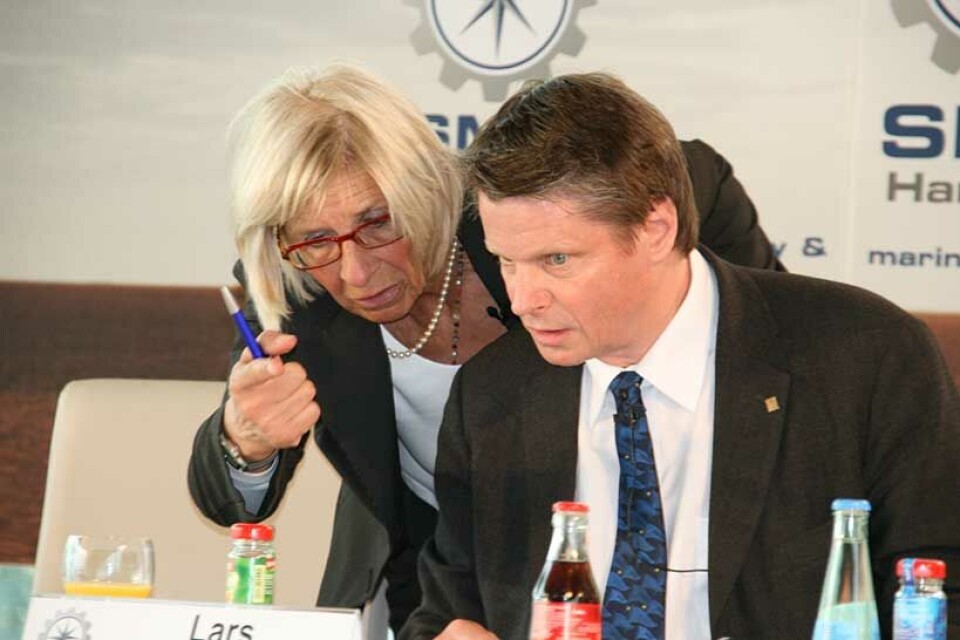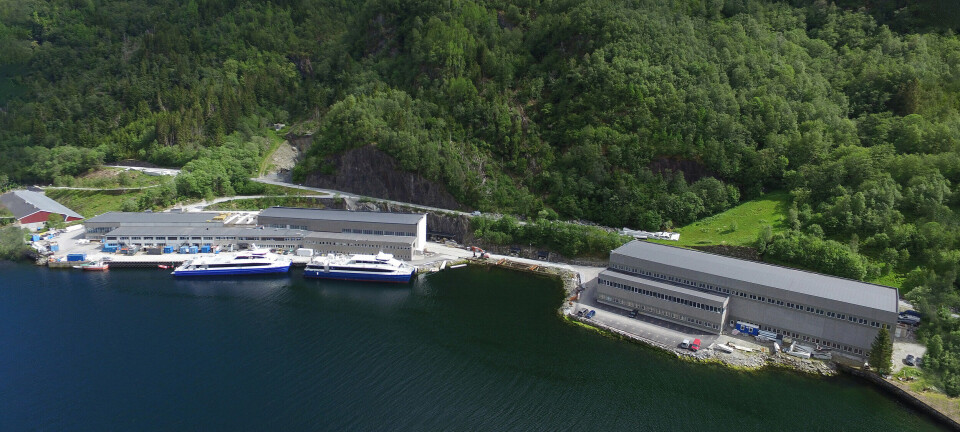
SEA Europe AGM in Vilnius:
The European Ships and Maritime Equipment Association (SEA Europe) held its Annual General Meeting in Vilnius from 27-29 June hosted by the Association of Lithuanian Shipbuilders and Ship-repairers.
Denne artikkelen er tre år eller eldre.
National shipbuilding and maritime equipment associations from Europe and leading companies, representing almost 100% of the European shipbuilding value chain, reviewed their European and international policy strategy for the coming year against challenging but cautiously optimistic economic conditions.
Matters discussed amongst others included challenges associated with long term financing of new ships, implementation of new environmental legislation and research development and innovation. Providing a background to the discussions was the endorsement of the European strategic framework, LeaderSHIP 2020, by the Competitiveness Council on the 29th of May 2013.
“With the firm commitment of the Member States and the European Commission for this initiative a real momentum has been created to support the sector politically in these challenging times”, the SEA
Europe Chairman Mr Lars Gørvell-Dahll said. “There are a number of important policy issues which can be stimulated by LeaderSHIP and should give the industry and SEA Europe orientation in the coming years in order to enhance the European maritime technology industry’s competitiveness”.
On the postponement of the entry into force of Tier III NOx standards from 2016-2014 and more broadly the undue uncertainty of implementation of environmental maritime regulations it was agreed that this is not good for business. It sets back the ambitions of the sector and penalises ‘first movers’ to develop the most environmentally friendly ships and technologies for ‘greener’ operation and benefit of the environment. European shipbuilding, ship maintenance, repair and conversion sector and maritime equipment manufacturers will closely work with the European Commission and EMSA to effectively address the implementation of maritime environmental regulations.
In the face of challenging market conditions discussion also took place on long-term financing of large scale projects which characterises the European maritime technology industry. In summary the predictability and access to finance is vital for the industry to fund long-term investments and this relies on the ability of the financial system to operate effectively and responsibly overcoming bottlenecks.
SEA Europe will prioritise its focus on research development and innovation. The association will continue to coordinate the development of a Public Private Partnership under Horizon 2020 on behalf of the Waterborne Technology Platform looking at the eco-efficiency and safety of vessels. Furthermore it was emphasised that Innovation Aid under the current Shipbuilding Framework for State Aid is essential for supporting innovation. After the expiry of the shipbuilding framework at the end of 2013, the definitions for innovation aid should remain intact under the revised RDI framework.
The SEA Europe AGM also endorsed the decision that Mr Govert Hamers (IHC Merwede, Netherlands) will succeed Mr Lars Gørvell-Dahll (Kongsberg, Norway) as Chairman of SEA Europe from October 2013. Mr Gørvell-Dahll will step down midway through his tenure in order to be the Managing Director of the maritime arm of the Federation of Norwegian Industries. At the Ship Maintenance Repair and
Conversion group meeting Mr Wilhelm Salamon (Damen Ship Repair, France) was elected Chairman and Mr Jan Kees Pilaar (Blöhm and Voss, Germany) as Vice Chairman of the group.











